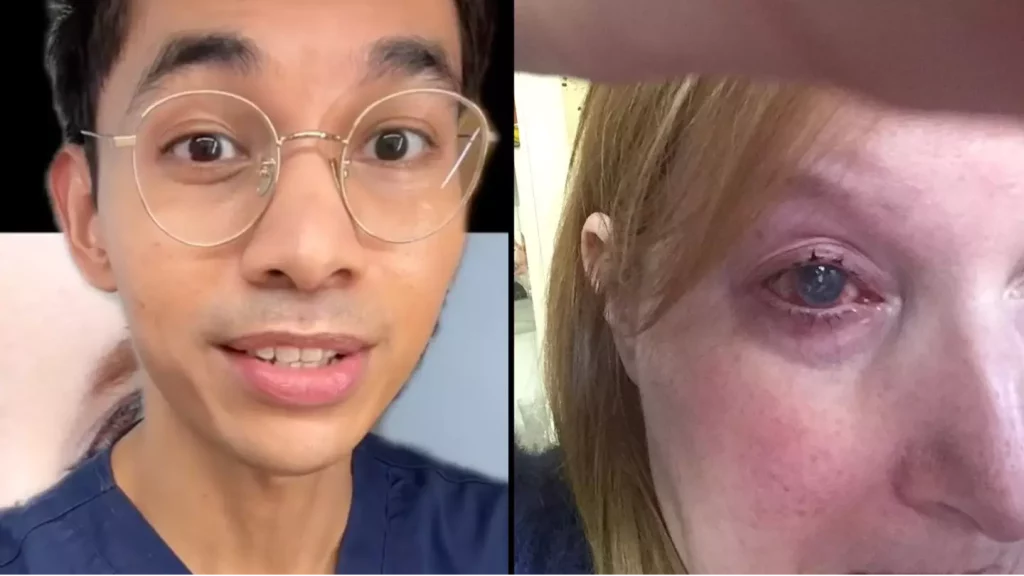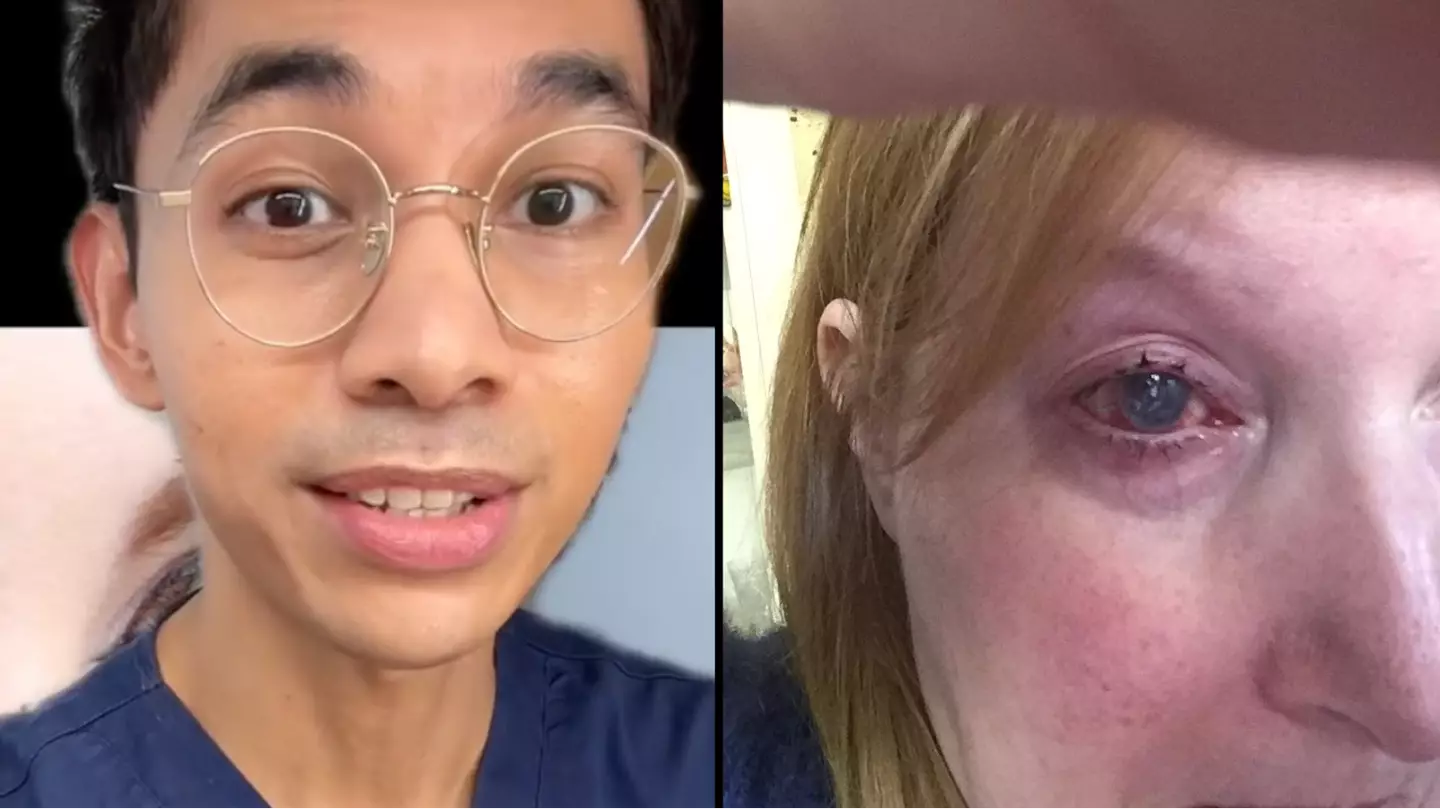You should probably stick to glasses after reading this!
Watch Our Video Of The Week
After describing the situation of a woman who ultimately required having her eye removed, a doctor has successfully discouraged individuals from wearing contact lenses.
To be completely honest with you, if you’re someone who depends on contact lenses, the TikTok doctor known as GP Samuel’s series ‘New Fear Unlocked’ will undoubtedly live true to its name.
It concerns Marie Mason, a resident of Leicestershire, who experienced a very peculiar condition that ultimately required the removal of her eye.
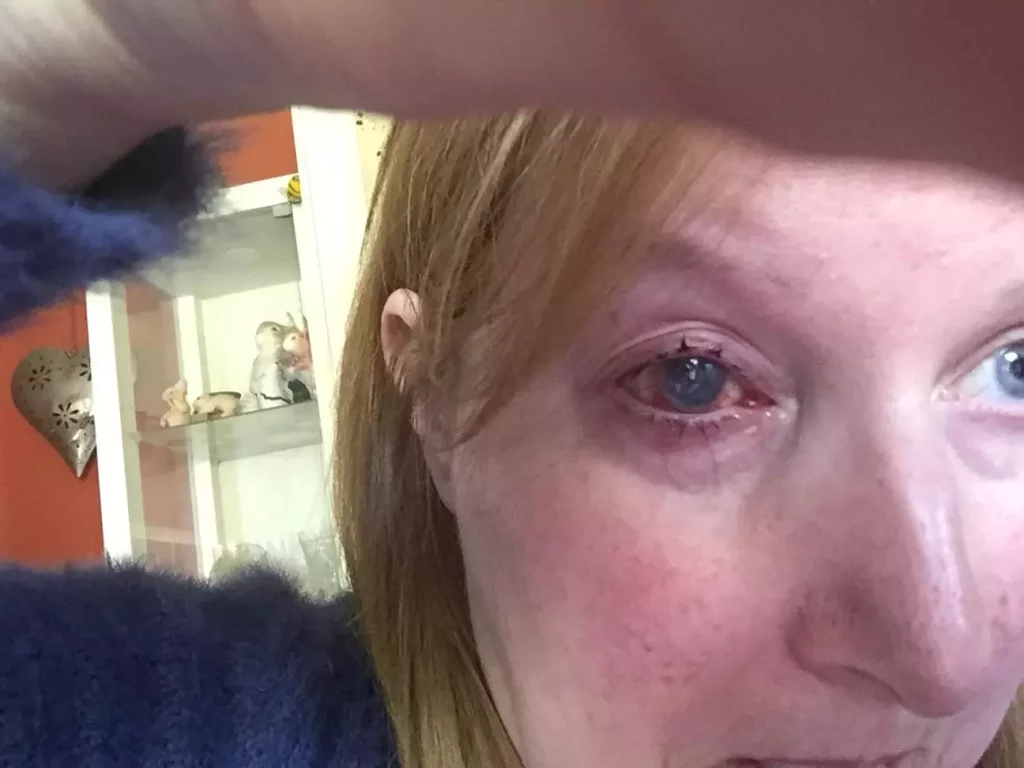
The doctor explained: “She wears monthly contact lenses and often showered, until one day when her vision deproved.
“Her optician immediately sent her to see her eye specialist, where they diagnosed her with [a] contact lens-related infection.
Unfortunately for her, this was not your typical bacterial infection.
“They found that this was caused by a parasite that can be found in tap water, that can go underneath your contact lens when you shower.
“That parasite is called acanthamoeba.”
GP Samuel went on: “As the name suggests, it is an amoeba, not a virus [and] not a bacteria, which also means that typical antibiotic eye drops are not very effective against this.
“This explains why Marie suffered for five years and despite trying multiple medications [and] having three corneal transplants she ended up needing to remove her eye.
“Most people will be like ‘stop scaring us, this is rare, contact lens infections only affect about one in 5,000 people, acanthamoeba is even rarer’ but when severe, [it] can cause loss of vision.
“I know most of you guys will still wear contact lenses, so this is how to minimise your risk.

“One – don’t swim, sleep, or shower with them on.
“Dailies have a lower risk, do not reuse dailies.
“Always wash your hands before handling contact lenses, only use approved solutions, change your lens case regularly.”
Although this incident happened in 2015, it persisted for a while before Marie ultimately needed to have her eye removed.
Despite the fact that she acknowledged that she still “struggles sometimes,” she is now back at work and living a life that is nearly normal again.
After the ordeal in late 2022, she said: “My life is alright now, I haven’t gone back to work to the place I left, but I now work for my husband.
“I’m also heavily involved with the church where I do a lot of voluntary work so my life has changed, but it’s a nice change, and it’s different.
“The only thing I’ve not gone back to is driving, I stopped driving quite early on in the journey because I wasn’t comfortable with it, and I haven’t got the confidence to go back to it, so that’s the main thing that’s changed for me.
“I do struggle sometimes because my vision on my left side is rubbish, well it’s not there.
“It’s quite hard walking down the street when you’ve got people whizzing by you, and it makes you jump a bit because you don’t expect it.”
Grim Reality Of What Happens When You Don’t Wash Your Belly Button
All Blue-Eyed People Have This One Thing In Common
Around eight to ten per cent of the population have blue eyes and apparently, they all have one thing in common.
The eye colour is the second most prevalent in the globe, and it is said to have first appeared between 6,000 and 10,000 years ago.
Since all people initially had brown eyes in a variety of tones, it is thought that a genetic mutation is what caused the widespread iris coloration to begin.
A gene named HERC2 has just been shown to be responsible with blue eyes.
This gene controls how much of the brown pigment melanin we produce and turns off OCA2, which causes varied colours of brown eyes.
We all used to have brown eyes, according to Professor Hans Eiberg from the university’s Department of Cellular and Molecular Medicine. But a’switch’ was created in our chromosomes that literally ‘turned off’ the capacity to generate brown eyes as a result of a genetic mutation affecting the OCA2 gene.
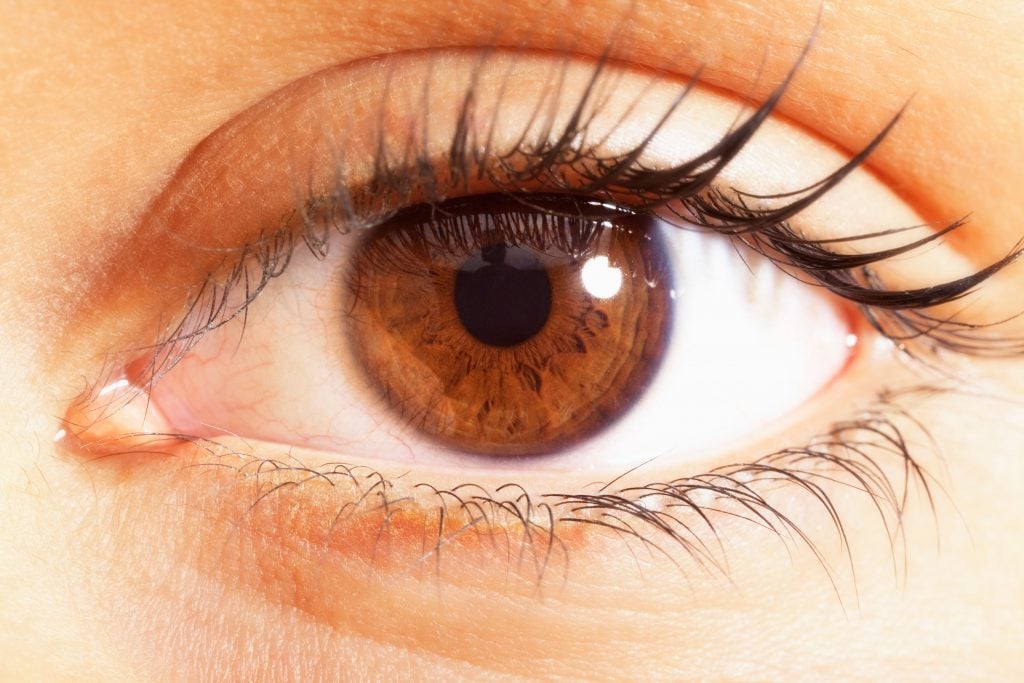
It is believed to have originally begun when humans first migrated from Africa to Europe, The Independent details.
The study suggests that all blue-eyed people are descendants of one person.
Although it remains a mystery who first started this initial mutant gene, the fact every blue-eyed person has this mutation is pretty compelling evidence.
The research into the genetic mutation of persons with blue eyes, according to Professor Eiberg in the paper, “simply shows that nature is shuffling the human genome, creating a genetic cocktail of human chromosomes, and trying out different changes as it does.”
But blue eyes have other intriguing qualities as well.
Additionally, blue-eyed folks have been found to be more light-sensitive.

According to Auckland Eye, having more melanin in the iris increases your eye’s defence against damage from UV and blue light.
So as people with blue eyes have less melanin than other colours, photophobia (which means abnormal sensitivity to light) is usually more common.
While this may sound like a negative, there are actually many perks to having blue eyes.
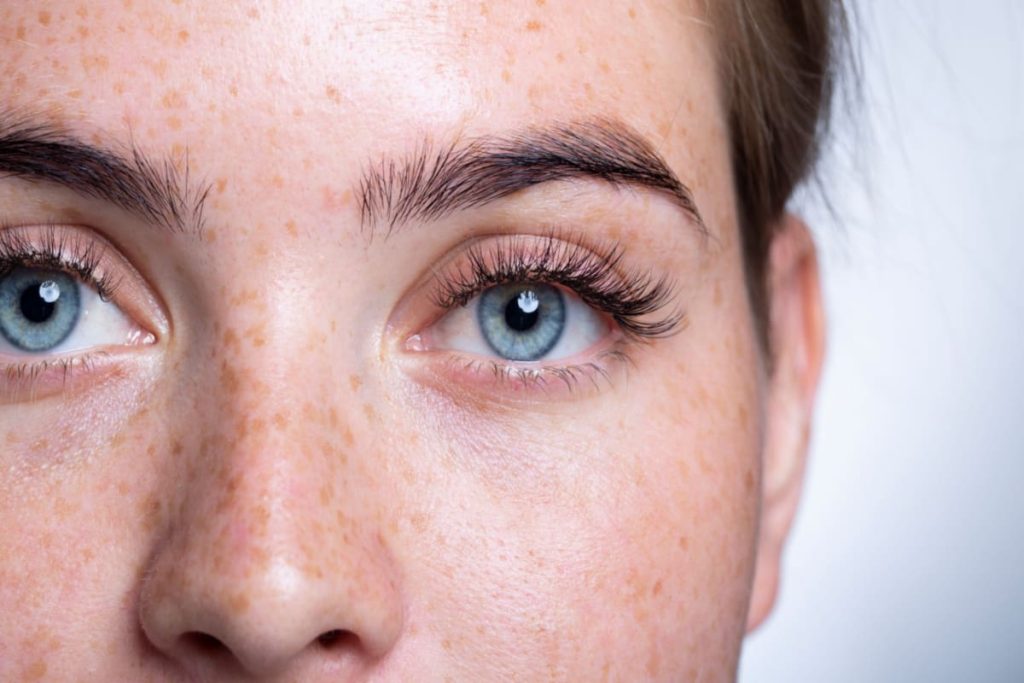
According to a study by Joanna Rowe, a professor at Louisville University, people with this eye colour are more likely to be better strategic thinkers.
The lecturer makes it clear: “It is just observed, not explained. Science has not yet provided a solution.
But there are many celebrities with blue eyes who have bright minds, including Stephen Hawking, Alexander Fleming and Marie Curie.
